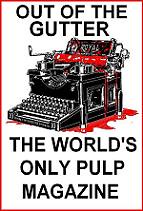
What a character eats for breakfast says something about them. As does what they wear. I expect a character in tight leather pants to act differently than I do a character in a suit. And a character who eats leftover whatever for breakfast is different than one who has a carefully measured bowl of Extra Fiber-Os with organic orange juice.
But there's a line between showing character traits and just giving mundane details. If you've already introduced the character as being Queen of the Microwave, I don't need to know that on Monday she microwaved a Lean Cuisine Entree, on Tuesday it was a Stoufer's Entree, on Wednesday it one of those meal-in-a-bags and on Thursday it was Campbell's Soup (in the conveninent cook-eat-toss cup.) By Thrusday, I'm skimming the dinner passage thinking "blah blah dinner, what's next?" Esp. since by Thursday, we should be into the heart of the book were GOOD stuff is happening.
If the reader is diddling with me by stopping for dinner as way to prolong the story (and kidding everyone by calling it "character development") I'm going to start to get Cranky. By the middle of the book, the character is either developed, or the writer has flunked out of Noveling 201. So, leave out the dinner details and get back to the plot.
So, what do I propose the writer does for Thursday's dinner? Worst case, just breezily mention, "Character threw dinner in the microwave." Better-- skip past dinner-making. Skip past dinner and cut to the next scene.
Instead of...
"I scanned the shelves and finally selected a can of Campel''s Chunky Chicken Noodle Soup. I pulled the pop-top, poured it into a microwavable safe bowl, and put dinner in the microwave. While it was cooking, I gathered a drink, some potatoe chips, a spoon and a napking and set those things on the table. Just after I did so, the microwave chirped. As I sat down to eat, my phone rang. It was Officer Smith calling about the injured girl from earlier. She didn't make it."
That was hard to write. My inner-editor-- who is vulgar and vocal-- kept berating me for writing it even as I told her that it was just an example. She finally blew me a raspberry and shut up.
So, the better version.
"As I sat down to eat another microwaved dinner, my phone rang. It was Officer Smith calling about the injured girl from earlier. She didn't make it."
If I want to read about mundane details of people's lives, there's always facebook and twitter for that. Or certain blogs. If I'm reading a book, I'm there for the not-mundane. I'm there for the story. Develop the character in the early chapters with only the necessisties, then, dear author, get the hell out of the way and let the story play out. Please.
The same goes for describing the character's clothes every time they get dressed, descriptions of the character, the character's house, and backstory that has already been explained. The last must be done carefully because, in my opinion, little reminders are helpful for busy readers who may not remember everything from the beginning when the end arrives. Though, a sense of the character, I'll already have without another description of the character's car, purse, or predicament.
Not surprisingly, I'm very careful and sometimes sparse in my own storytelling and details. Write what you enjoy, they say.





2 comments:
I think the mundane can work if you juxtapose it with some atypical or outlandish behaviour. I try to do that in my stories but it could just be that I'm fairly dull!
I tend to write the first draft lean and then add padding to round out the description.
Post a Comment